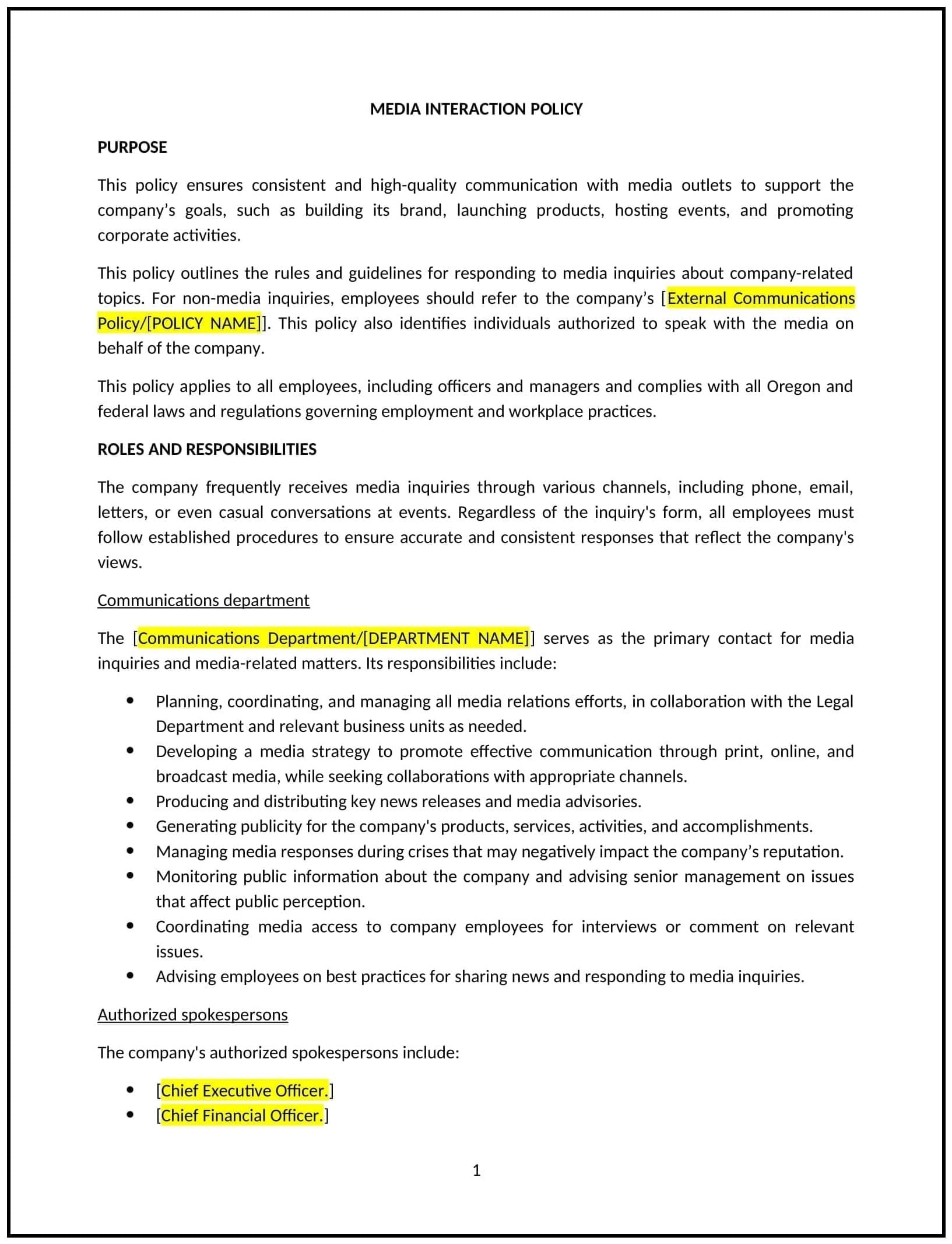Got contracts to review? While you're here for policies, let Cobrief make contract review effortless—start your free review now.

Customize this template for free
Media relations policy (Oregon)
This media relations policy is designed to help Oregon businesses manage interactions with the media, including interviews, press releases, and public statements. It outlines procedures for responding to media inquiries and maintaining a consistent public image.
By implementing this policy, businesses can protect their reputation, ensure accurate communication, and align with best practices for media engagement.
How to use this media relations policy (Oregon)
- Define roles: Designate a spokesperson or team to handle media inquiries.
- Establish approval processes: Outline steps for reviewing and approving press releases or public statements.
- Address crisis communication: Develop procedures for responding to negative media coverage or emergencies.
- Train employees: Educate staff on handling media inquiries and referring them to the designated spokesperson.
- Monitor media coverage: Regularly review news articles and social media mentions related to the business.
- Review and update: Assess the policy annually to ensure it aligns with evolving media trends and business needs.
Benefits of using this media relations policy (Oregon)
This policy provides several advantages for Oregon businesses:
- Protects reputation: Ensures consistent and accurate communication with the media.
- Enhances credibility: Demonstrates professionalism and transparency in media interactions.
- Reduces risks: Minimizes the potential for miscommunication or negative publicity.
- Supports branding: Maintains a consistent public image across all media channels.
- Improves crisis management: Provides a structured approach to handling media during emergencies.
Tips for using this media relations policy (Oregon)
- Communicate clearly: Share the policy with employees and include it in onboarding materials.
- Provide training: Educate staff on handling media inquiries and referring them to the designated spokesperson.
- Monitor compliance: Regularly review media interactions to ensure adherence to the policy.
- Address issues promptly: Take corrective action if employees violate the policy or mishandle media inquiries.
- Update regularly: Revise the policy as needed to reflect changes in media trends or business needs.